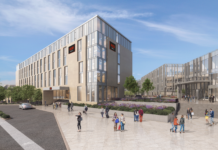Things have not gone to plan at Samarkand (LON: SMK) since it joined Aquis 18 months ago. The large cash outflow means that the China-focused e-commerce technology and brands retailer requires a cash injection of up to £3m via an open offer.
Covid lockdowns in China have delayed progress and hampered the ability to supply products.
Overheads were increased to cope with expected growth that did not arrive. That caused a sharp jump in the loss last year. These costs have been reduced and the full impact of the reduction will show through this year.
In the year to March 2022, revenues fell from £20.6m to £16.6m, although if one-off revenues in the previous period are excluded then there was a 12% improvement. There was an initial contribution from the Zita West supplements brand acquired last year.
The main underlying growth is coming from the Nomad software platform where revenues were 18% ahead at £7.5m. These revenues should accelerate as more companies sign up and the existing clients grow their business.
First quarter trading this year has been stronger and the loss is reducing. A full year loss is still expected for 2022-23.
Cash
There was a cash outflow from operating activities of more than £8m and a further £1.2m of capitalised investment in software development.
In March 2021, Samarkand raised £17m at 115p a share. In May, United Win Asia invested a further £3.15m at 115p. The one-for-ten open offer is at 55p a share. The share price fell 2p to 60.5p.
Major shareholder Global Smollan Holdings is taking up its entitlement of £445,000 and is applying for an additional £755,000 under the excess option. Executive directors are taking up £300,000 worth of shares. That means a minimum of £1.5m will be raised.
Without the cash injection Samarkand would have been expected to fall into a net debt position by March 2023. Revenues are expected to be £17m, rising to £22.5m in 2023-24 – cash could be generated at that level although not enough to cover capitalised development.
If £3m is raised, then this should be enough to cover working capital for the next two years. Additional funding would be required if further brands are acquired.





